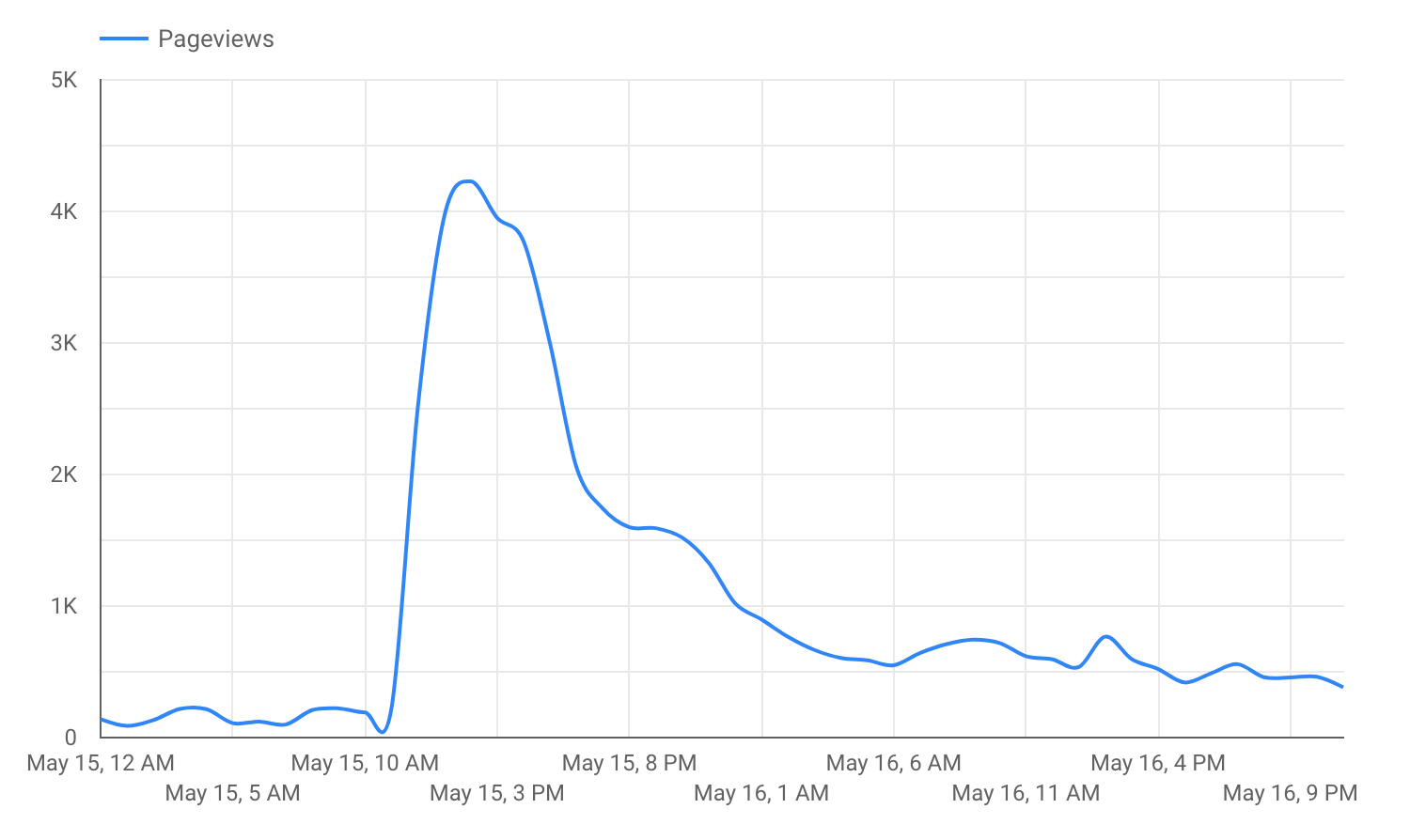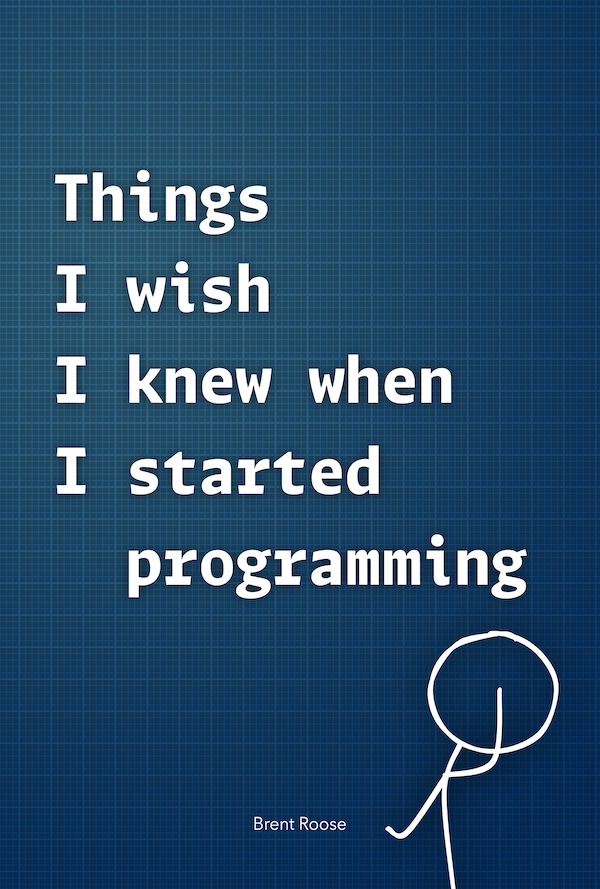03 — The Stack
written by Brent on December 05, 2020In this chapter we'll discuss the best technical stack for your blog. Disclaimer: there's no perfect one, and the simple approach is often the best.
I want to make something clear: you're building a blog, not Facebook or Reddit. The only thing your website needs to do is serve a few simple HTML pages, CSS scripts and maybe an image here and there. I want to take you back to May, 2019; more specifically Wednesday the 15th.
This was the first time one of my posts went viral on Hacker News. I posted a link without thinking too much of it and noticed two hours later that more than 300 people were browsing my blog at once. It turned out the post was rather well received, and eventually ended up with 908 upvotes.
This is what going viral on Hackernews looks like:
 Pageviews per hour on May 15th and 16th, 2019
Pageviews per hour on May 15th and 16th, 2019
Let me tell you, this was one of the biggest adrenaline rushes I've felt in my entire life. That can either mean I have a very boring life, or that it's very cool to go viral — I'm happy to leave that question unanswered.
My blog was serving around 1000 requests per minute (including images and resources); and it never went down, performance was as good as ever. Did I have a fancy serverless setup that could horizontally scale? Did I have a complex caching layer or a third party CDN like Cloudflare?
Nope, just a static website running on the cheapest digital ocean droplet.
My blog is powered by my own hobby-project static site generator written in PHP. When you're reading this however, it's all just HTML pages saved on the server. It turns out the simple solution is often the best one. Like I said: you're not Facebook or Reddit, you'll be fine with the cheapest solution you can think of.
In fact, I'm still curious to know the limits of my current setup, because I haven't encountered them yet.
Do you like what you read?
There's more to come! Make sure to leave your email address to stay up to date of new chapters being added to this series.
Stick with the simplest stack possible. I'd advise you to use a static site generator, or cache your blog statically if you're using a blogging engine like WordPress. If you're a developer like me, you could probably build something on your own, but honestly I'd advise against that.
I must admit that I probably wouldn't build my own static site generator again if I had to start from scratch today. There are enough open source and free alternatives out there. I still like my own solution because I can hack it whatever way I want and add little niceties, but honestly it's easier to start with something you can set up in 30 minutes and forget about it afterwards. Remember: Content is King, so don't waste too much time on setting up a complex solution. You can worry about that later if you really want to.
In summary
- You're not Facebook, you'll manage fine with the most basic setup.
- Focus on writing, don't spend days upon days with the technical side.
- Simplicity is key when starting, you can always expand later.
Index
Do you enjoy this series?
I write about much more technical and blog related topics, if you want to you can subscribe to stay up to date about my content.
You can also subscribe via RSS.
Available now: my book "Things I wish I knew when I started programming". You can buy paperback or ebook versions today!